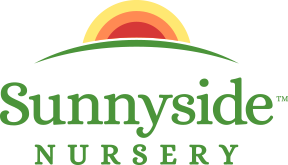It pains me to see customers spending hundreds of dollars on new plants and simultaneously refusing to spend a few more on a bag or two of compost and a box of starter fertilizer. These two items are not unnecessary “add-ons” that the retailer is just trying to add to the sale, they are critical components of a successful transplanting process - or as I like to refer to them as “plant insurance”. Unless you have phenomenal soil, you should always add compost and starter fertilizers when you are planting new plants. Here is why…
COMPOST: It’s a soil amendment, not a fertilizer. First and foremost, compost adds microbial activity to the soil. By far, the most important role of organic matter (what most of us refer to as compost, manure or mulch) is to add to our soils millions-upon-millions of soil microbes, in the form of fungal and bacterial organisms. These creatures work all sorts of miracles in our soils and play a vital role in helping plant roots absorb nutrients from the soil-complex we typically refer to as dirt. Dirt that is devoid of microbes, due to excessive use of pesticides or other chemical products, cannot help support growth like a soil that is teaming with these microscopic creatures. Because organic material is consumed by these microbes throughout the season, it is imperative that we replenish it on an annual basis whether or not we are introducing new plants or just maintaining existing ones.
The second purpose of adding compost is to improve the physical properties of our soils. Whether we have a very fast-draining sandy soil or a slow-draining heavy clay soil, the panacea for either of these extremes is compost (organic matter to be more precise). The coarse nature of compost lends itself to improving drainage in a fine clay soil and creating pore spaces that also allow air to flow in between the soil particles. This same material also increases the moisture retentive qualities of a sandy soil. In short, compost seems to do it all, it is truly the solution to almost all of our soil problems
FERTILIZER: It is food for new growth. Fertilizers are a source of plant food that is intended to feed our established and newly planted treasures. We need both compost and fertilizer to insure that we are providing everything our plants require to thrive. By far, the best sources of fertilizer are natural and organic in origin. Agricultural byproducts like blood meal, alfalfa meal, bone meal, feather meal, sunflower hull ash, cotton seed meal, and natural products like bat guano and worm castings, are excellent for their slow release, non-burning, and long-lasting qualities, and let’s not forget the recycling and re-purposing values of these products. They are also rich in trace elements often not found in commercial fertilizers. As an added bonus to these products, many manufacturers now add microorganisms called mycorrhizae that will affix themselves to the roots of plants and assist in utilizing the fertilizers contained in the boxes. Look for products that contain mycorrhizae and you will see huge benefits.
So, the next time you are at the garden center and getting ready to check out, don’t forget the compost and starter fertilizer. Think of these products as plant insurance that will help you establish your new purchases and increase their value and beauty for years to come. If you have already planted everything, then spread the fertilizer over the soil surface and cover it with an inch of compost and you should be good to go. Happy gardening!


